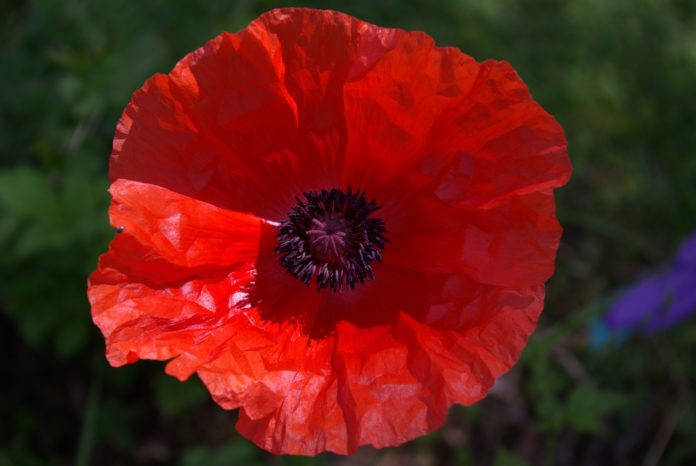What is a poppy, anyway – sign of remembrance, symbol of gratitude, connection to lost loved ones, respectful acknowledgment, insult, or simply a red and black flower?
Some people have been using the poppy to fight their own war against those who are offended by it, going on social media to declare ‘for those offended… go home’. But where is ‘home’? And where are the people who are supposedly so offended?
Lest we forget: the poppy was made into a popular symbol after the First World War; not to start a new one. We must not let it be used as ammunition in a phoney war today.
Wear your poppy for your country, wear your poppy for your own memories, wear your poppy to remember, wear your poppy out of respect. The reasons go on and on, but do not wear it out of ignorance. And please do not make a political or religious statement when it was not intended to be taken that way.
After the First World War, the poppy was adopted as a symbol of Remembrance. Despite the wreck and ruin of the Flanders fields which had been shelled to smithereens (along with hundreds of thousands of soldiers who were confined there in their trenches), the delicate but resilient poppy still managed to flourish. Hence poppies were adopted as a way for those who survived to remember all those whose lives had been crushed.
Since then the poppy has accrued all sorts of myths and misunderstandings about what it stands for. Some people insist it symbolises death, others maintain it is essentially pro-war. There are people who impute religious beliefs to it, or who read too much into its ‘blood-red’ colour. But none of the above is a necessary part of wearing a poppy. The British Legion simply states that it is ‘a personal choice and reflects individual and personal memories.’
Yes, there was one extremist who burned poppies on Armistice Day in 2011. He was had up in court for it, and he was not remotely representative of the Muslims he claimed to speak for. In which case the action of this one man and perhaps a handful of others like him, in no way justifies the politicisation of the poppy by people who claim to be defending British values.
The poppy is too precious to be left to extremists from either side.

